Contents of this article
- 1. Yang Wu’s children
- 2. Chen Ning Yang was not at his peak when he won the Nobel Prize at the age of 35.
- 3. The story of mathematician Yang Zhenning
- 4.Who is Yang Zhenning’s grandfather?
Yang Wu's children
Yang Zhenning, Li Zhengdao, including Hua Luogeng, we are familiar with these names. They have achieved commendable achievements in the world of physics and mathematics. Behind the success of these three people, they cannot do without the support of one person, and that is Mr. Yang Wuzhi.
Yang Wuzhi, an early educator and mathematician in my country, was the pioneer of modern number theory in my country and the first doctorate in mathematics in Chinese history, laying the foundation for modern mathematics in my country.
Mr. Yang Wuzhi's contribution to the mathematics community in our country can be said to be decisive. You may wonder, after he has made so many contributions to mathematics, why do he put educators before mathematicians? Everything starts with Mr. Yang Wuzhi’s patriotic heart. Mr. Yang Wuzhi's biggest regret in his life is related to this.
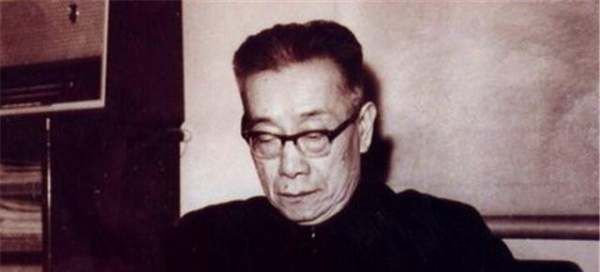
Yang Wuzhi, formerly known as Yang Kechun, was originally from Hefei, Anhui. His parents died when he was young, and he grew up under the care of his uncle Yang Bangrui. He has determined to be a glorious people's teacher since he was a child. Coupled with his calm and independent thinking character, his academic performance was among the best at that time. After graduating from Anhui Provincial No. 2 Middle School, the best high school in the area, he was successfully admitted to Beijing Normal School to study mathematics, and also obtained the highest academic qualifications for normal students at the time. His story and achievements go far beyond that.
To start a family and start a career, start a family first and then start a career. After Yang Wuzhi graduated, he returned to his hometown and married his beloved childhood sweetheart, Luo Menghua. With Luo Menghua's support, he chose to travel across the ocean to study at Stanford University shortly after their marriage. Yang Wuzhi, who arrived at Stanford, was like a sponge dropped into the water, desperately absorbing nutrients.
He studied the topic day and night and thought deeply. His hard work and talent made him stand out quickly. After completing his degree from Stanford, he received an admission notice from the University of Chicago, one of the world's top universities. His strong thirst for knowledge and yearning for advanced technology supported him to continue his studies abroad.
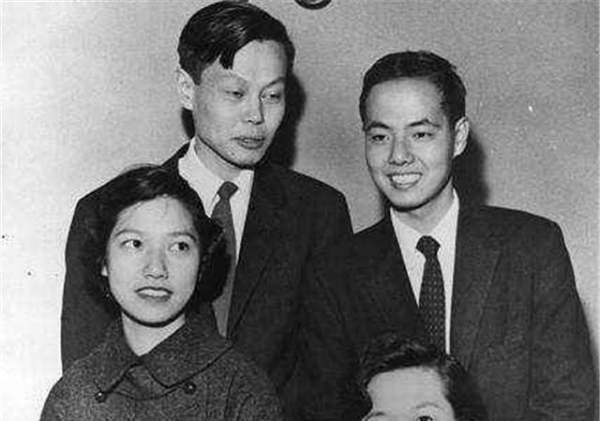
After he entered the University of Chicago, he studied hard and didn't waste a single minute. After studying hard, he successfully obtained a master's degree and a doctorate degree in the Department of Mathematics. While in school, he independently published his own original papers. His "Invariants of Bilinear Types" including "Generalization of Hualin Problem in Various Subjects" have been recognized by the mathematics community. He did not forget his ideals. After graduation, he returned to the motherland where he was raised. He successively taught at the top universities in the country at that time and trained batches of outstanding mathematical talents for our country.
When Mr. Yang Wuzhi's colleagues commented on him, they said that genius never relies solely on talent, but acquired hard work plays a more important role. The example of Shang Zhongyong tells us that laziness and lack of motivation can quickly wear away the edges and future of a genius. Yang Wuzhi is a lucky man. He has a digital acumen that others do not have. Coupled with his ideals and ambitions, his success is no accident.
When he first returned to China, he worked as a mathematics teacher at his alma mater, Anhui Provincial No. 2 Middle School. He is strict and meticulous in class. If there are children in the class who are too happy to play every day and have no interest in studying, they will be severely punished after gentle persuasion to no avail.
During his tenure, he never gave up on any student. In college classrooms, he taught students everything he could, encouraged them to speak up and dare to question, and cultivated a group of outstanding young mathematicians, who made great contributions to the cause of mathematics in our country.
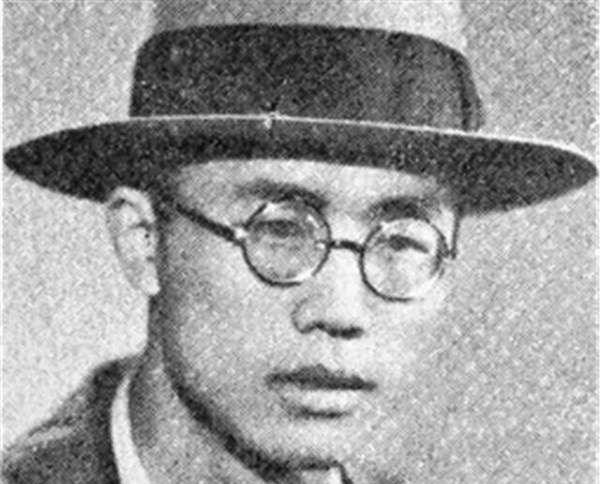
What is worth mentioning is his relationship with Mr. Hua Luogeng, a great mathematician in my country. The two are both teachers and friends. Hua Luogeng was successfully admitted to the Department of Mathematics at Tsinghua University, and Yang Wuzhi was his professor. We know that mathematics is interoperable, but its classification is detailed. Young Hua Luogeng was in a period of confusion. He didn't know what to choose.
Yang Wuzhi, who had a keen eye for beading, saw Hua Luogeng's shining points and recommended him to focus on Hua Biao's research. The experienced Yang Wuzhi gave Hua Luogeng many suggestions based on his actual situation. Hua Luogeng, who was influenced by what he heard and saw, set the goal of working hard to serve the country like his mentor.
After Hua Luogeng returned to China after studying abroad, he chose to work at the Southwest Associated University where Yang Wuzhi was the director of mathematics. Yang Wuzhi was very supportive of this young man with extraordinary abilities. He saw that Hua Luogeng had extraordinary potential, and despite everyone's opposition, he allowed the young Hua Luogeng to lead his students in his own way, giving him great rights. Hua Luogeng also respected his mentor very much. After becoming colleagues, the two often researched topics together and became close friends in mathematics.
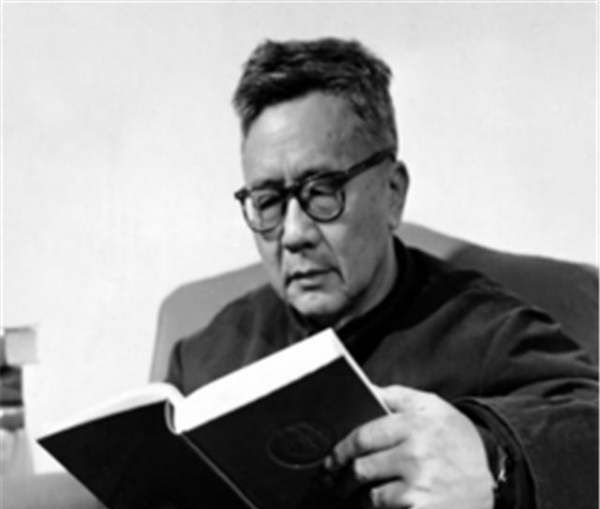
Every family has a hard-to-recite scripture. He is such a successful mathematician and educator. He has never changed his original intention throughout his life, and his patriotism is touching. His efforts eventually bore fruit and he was prosperous. In addition, his son Yang Zhenning, who was personally trained, has lived up to the training of Mr. Yang Wuzhi and has made great achievements in the physics major. There should be no regrets in his life. Unexpectedly, the issue of his son's nationality made him regret it for the rest of his life. Yes, his son Yang Zhenning gave up his Chinese citizenship and chose to become an American citizen in order to conduct deeper research and learn cutting-edge technology.
This is also the most distressing point for Yang Wuzhi. Yang Wuzhi himself was very patriotic. It is not an exaggeration to say that he spent his whole life on the construction of the motherland. After learning that his son had become an American citizen, Yang Wuzhi's relationship with his son fell to a freezing point after several attempts to persuade him to no avail.
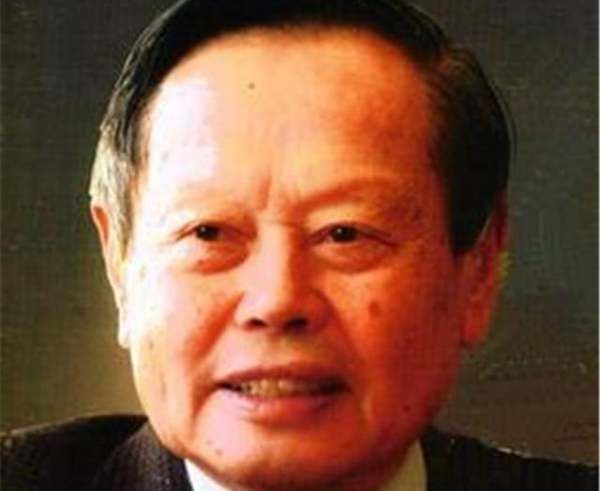
Yang Zhenning, a famous contemporary physicist in my country, did not inherit his father's mantle and chose to enter the field of physics. He attended Southwestern University and then the University of Chicago, his father's alma mater. He was also successful in his studies, and even more impressive in physics research. Today, he is an academician of the Chinese Academy of Sciences and a veritable physics expert. Such a great physicist has been repeatedly criticized because of his nationality.
Mr. Yang Wuzhi's son Yang Zhenning's choice to become a U.S. citizen has always been on the mind of Mr. Yang Wuzhi. He thought about it and couldn't understand what was wrong with his education, and he felt extremely guilty for a time. When Yang Zhenning and his friend Li Zhengdao won the Nobel Prize together, Yang Wuzhi, at the invitation of his son, set off for Geneva, where the Nobel Prize was awarded.
Mr. Yang Wuzhi wanted to persuade his stubborn son to change his mind. This matter was not easy. His son Yang Zhenning did not agree to his father's advice for various reasons. In the eyes of Yang Wuzhi, who has always dedicated his life to the country, his son Yang Zhenning's behavior is a kind of betrayal and cannot be forgiven.
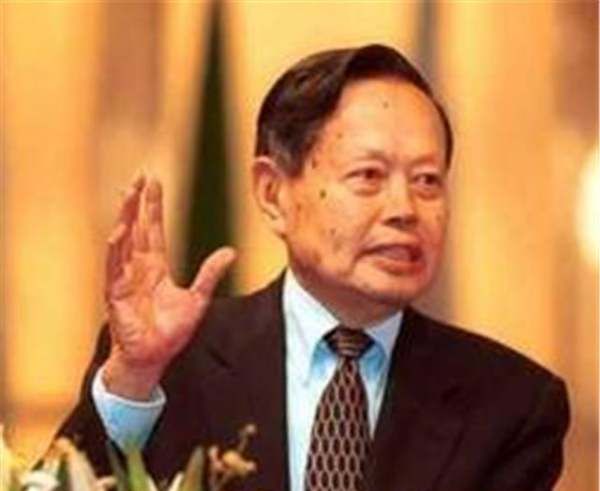
After several attempts to persuade him to no avail, the relationship between Mr. Yang Wuzhi and his son became very cold and alienated. This has also become Mr. Yang Wuzhi's biggest regret in his life. Until the death of Mr. Yang Wuzhi, his son Yang Zhenning did not regain our nationality.
Things often go wrong in this world, so we don’t have to be too pushy. Fortunately, in 2003, Yang Zhenning chose to return to his motherland, and he spent the remaining years to contribute to our country. After four years of twists and turns, Yang Zhenning finally succeeded in restoring his nationality and fulfilled his father's last wish.
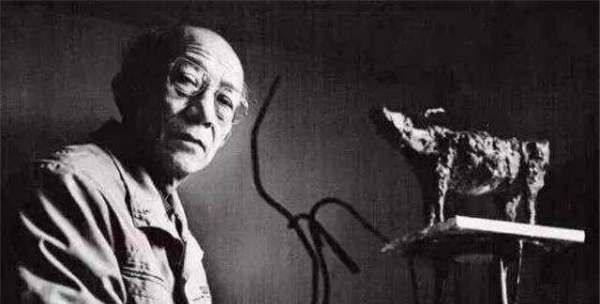
Some people say that Yang Zhenning chose to return to China when he was still in his twenties in order to reap my country's dividends. His love affair with Weng Fan was also criticized by us. This does not prevent Chen Ning Yang from doing his best to contribute to my country's physics industry. At an old age, he chose to stand on a three-foot podium, just like his father, who tirelessly educated the future of physics in our country.
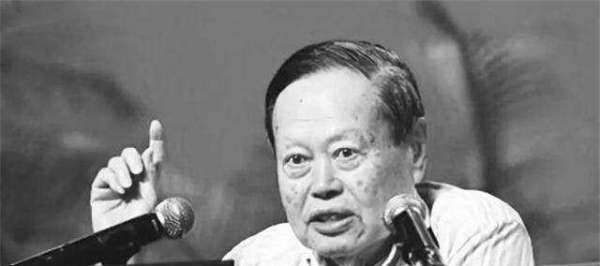
He was committed to the establishment of my country's physics research laboratory, and he was well-informed and gave many pertinent opinions. If Mr. Yang Wuzhi still has a trace of his soul in the campus that he has always cared about, he will probably look at his son with a smile and see him pouring all his money into the future of the motherland. He will have no regrets.
Yang Wuzhi and Yang Zhenning, father and son, have both made indelible contributions to the cause of modern teaching in our country. We are moved by Mr. Yang Wuzhi's lifelong belief and responsibility, and we are also grateful to Yang Zhenning for choosing to overcome a series of difficulties, restore nationality, and contribute to the country. Not only them, but countless Chinese people have spent their lives writing "I will have no regrets in entering China in this life, and I will still be a flower gardener in the next life." They are great people and always have been.
Chen Ning Yang was not at his peak when he won the Nobel Prize at the age of 35
Mr. Yang Zhenning is already 100 years old. Do we really understand Mr. Yang Zhenning’s life? If we say he has achieved anything, every day he has not wasted in these 100 years and this century is his greatest achievement. In his own words: "My life can be regarded as a circle. It started from one place, traveled a long way, and now I'm back."
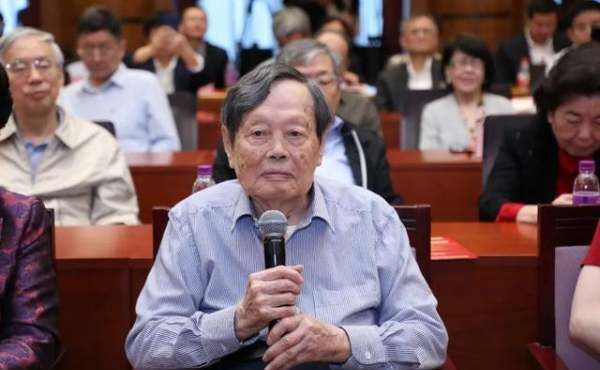
Family influence
Yang Zhenning’s father, Mr. Yang Wuzhi, is China’s first Ph.D. in number theory. Yang Wuzhi was born on April 14, 1896 in Hefei, Anhui. Both of his parents died early, and his uncle Yang Bangrui was responsible for taking care of him when he grew up. He was promoted to the Provincial Middle School and Beijing Higher Normal School; after graduation, he returned to his hometown school as a teacher and instructor.
Later, Yang Wuzhi felt deeply powerless about the environment he was in at that time, and decided to go abroad to study science and technology in order to change his country. In 1928, he completed his doctoral thesis and published "Various Generalizations of Hualin's Problem". He became a Ph.D. in mathematics from the University of Chicago and the first Ph.D. in number theory research in China. After returning to China, Yang Wuzhi taught at Tsinghua University and Southwest Associated University.
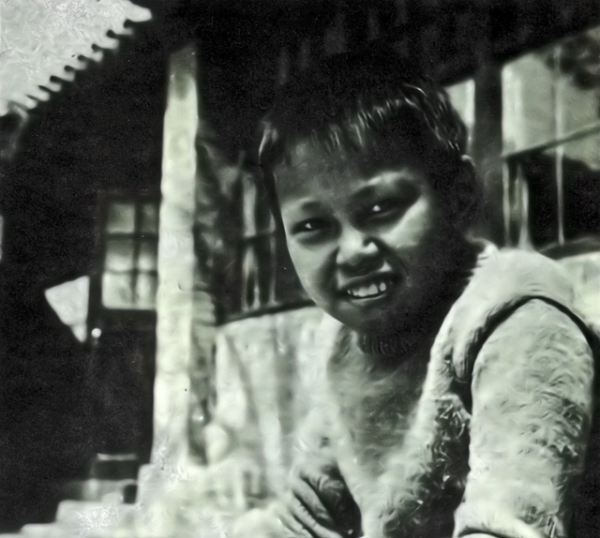
In 1973, Yang Wuzhi died at Fudan University where he taught in his later years. When Yang Zhenning recalled his father, he mentioned that his father was still concerned about his nationality before his death. In 2017, 95-year-old Yang Zhenning restored his Chinese nationality. It can be said that Yang Zhenning's life has been deeply influenced by his father Yang Wuzhi, from mathematics learning to Chinese poetry and feelings about his family and country.
Nobel Prize Team
In 1945, Chen Ning Yang went to Chicago to start studying for his doctorate. It can be said that Yang Zhenning completed his transformation from an apprentice to an independent scholar during his study career in Chicago. Yang Zhenning, who had just arrived in the United States, found that he was not suitable for the research direction he had originally set. He seemed clumsy in the laboratory, and was even teased by his classmates. Wherever there was the sound of crackling instruments breaking, that was where Yang Zhenning was.
Fortunately, the learning atmosphere at that time was very good. Teachers and classmates supported Yang Zhenning in changing his research direction and studying the theoretical direction in which he was best. Not long after "changing careers", Yang Zhenning met his most agreeable partner - Li Zhengdao, who was a few years younger than him. The intense scene when the two discussed physics problems and the harmonious figure walking together in the woods once became the scenery on campus.
Soon, in 1957, the two men collaborated on the law of non-conservation of the universe and were awarded the Nobel Prize. This research result had already begun to emerge in the early stages of their collaboration. However, the industry did not recognize and pay attention to their results at that time. Until their research was repeatedly verified experimentally by Wu Jianxiong, a Chinese female scientist who was in the United States at the time, the core framework of theoretical physics also ushered in revolutionary changes.
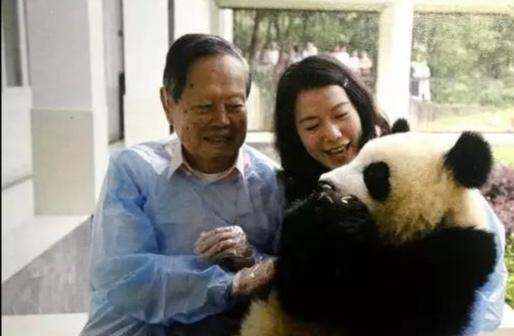
Life's work
Yang Zhenning won the Nobel Prize when he was 35 years old. Since then, he has maintained his love for life, kindness to others and tireless academic pursuit. In addition to the non-conservation law of the universe discovered together with Li Zhengdao, Yang Zhenning has other breakthrough results in physical research, such as Yang-Mills gauge field theory, Yang-Baxter equation, etc.
After Yang Zhenning achieved great success in his scientific research direction, he did not relax his efforts in teaching. Now a hundred years old, he has actually continued to teach at Tsinghua University for nearly 20 years. He is also the first senior teacher to take the lead in teaching undergraduates. In the process of teaching, Yang Zhenning can always give students the most relevant suggestions.
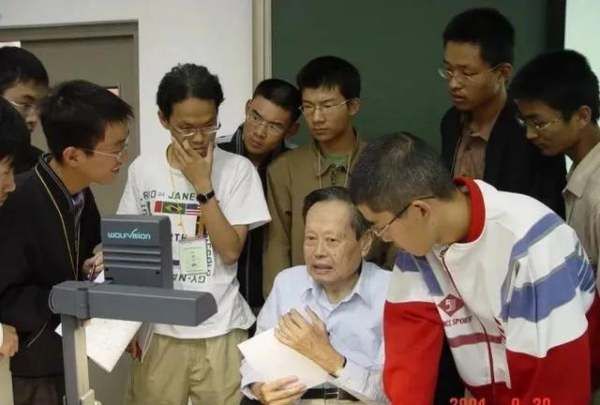
He once emphasized the importance of research direction to his students based on his own academic experience. He said that if you find the wrong research direction, you will reach a dead end. Once you find the right direction and find your interest, you will suddenly become enlightened. People who are familiar with Yang Zhenning also know that he is a person who is very interesting in life and full of love for Chinese culture.
Whether it is poems and songs picked up during daily travels or quotes from daily articles, it seems that Yang Zhenning can always find a balance between scientific research and life, and a balance between the West and the East. When he went abroad for his country, he chose to stay in the United States. Whether in China or the United States, he made great contributions to education and teaching, physics research, and the cultivation of young people in both countries.
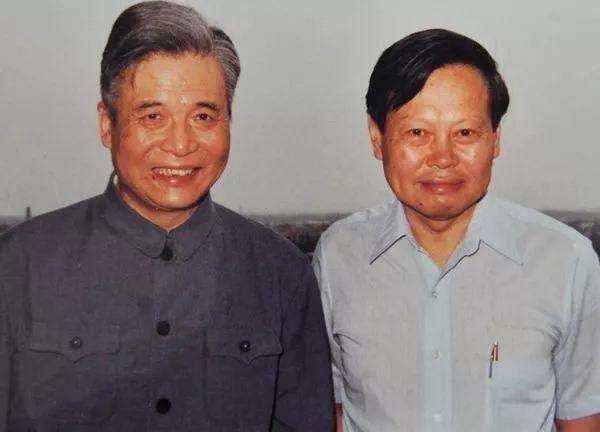
Influence of the times
Mr. Yang Chenning has interacted with celebrities across a century of life and countless historical events. Among them, the most talked about is the friendship between Yang Zhenning and Mr. Deng Jiaxian. Starting from the story of Mr. Yang Chenning in the last century asking whether China’s atomic bomb was completely manufactured by itself, to Mr. Yang Chenning’s speech on the centenary anniversary today. Both of these two great men of science made their own contributions to the strength of the motherland in their own way.
"Don't forget your love at every meal, and you will be grateful for the country's grace throughout your life." This was a message sent to Yang Zhenning by his father after he won the Nobel Prize in 1957. Half a century later, I think this old man in Tsinghua University must be worthy of his father's teachings when he thinks about his parents, his lifelong friendship, and the changes of the times.
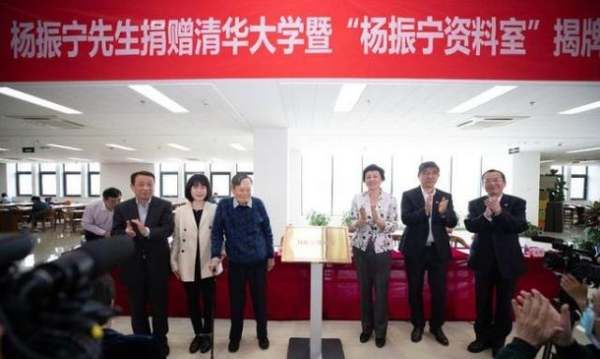
Chen Ning Yang is not only a Nobel laureate, but also the only Chinese winner of the Turing Award. In addition to those prestigious awards, he has also made unremitting efforts to cultivate young Chinese scholars. He has raised huge amounts of scientific research funds for Tsinghua University, Fudan University, and Nankai University, and assisted in the construction of dozens of laboratories. He has donated more than 6 million US dollars in his own name, published dozens of international papers in the name of Tsinghua University, and successfully recommended thousands of young scholars to participate in international training, etc.
The story of mathematician Yang Zhenning
Yang Zhenning’s father:
Yang Wuzhi
Yang Wuzhi (1896-1973) was a mathematician and mathematics educator.
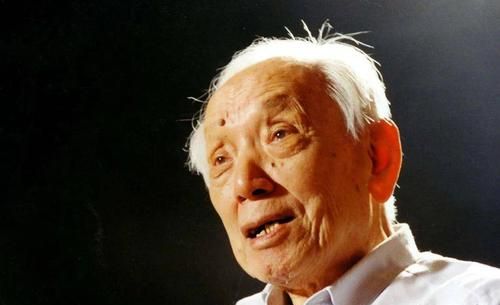
Who is Yang Zhenning’s grandfather?
Yang Wuzhi, a mathematician and educator, was originally named Yang Kechun, and Wuzhi was his nickname. Born on April 14, 1896 in Hefei, Anhui. He has long served as department director or acting director in the Department of Mathematics at Tsinghua University and Southwest Associated University. He is an early scholar engaged in the teaching and research of modern number theory and algebra in my country, and the father of Nobel Prize winner Yang Zhenning. Yang Wuzhi's father, Yang Bangsheng, was a scholar in the late Qing Dynasty and had been teaching in private schools in his early years. Later I went to Tianjin and worked in Duan Zhigui's shogunate as "bizhao", doing things like paperwork. In 1907, due to Duan Zhigui's loss of power, he returned home to find work. The next year, I wanted to find a job in Shenyang, but unfortunately I contracted the plague in a hotel and died. Yang Wuzhi's mother, whose surname was Wang, also died young when he was 9 years old (1905). Therefore, Yang Bangsheng and his wife did not take much care of Yang Wuzhi, and most of his life was arranged by his uncle Yang Bangrui. In 1914, Yang Wuzhi graduated from Anhui Provincial No. 2 Middle School. This is a very good school, which laid a good cultural foundation for Yang Wuzhi. In the autumn of that year, I was admitted to the preparatory course of Beijing Normal University for one year, and then entered the undergraduate department of mathematics and science. It was required to study for three years and he graduated in 1918. This academic qualification was the highest level in normal education at that time, and various places competed to recruit him. Finally, Yang Wuzhi decided to return to his alma mater, Anhui Provincial No. 2 Middle School, as a teacher and housemaster (discipline director). The young and energetic Yang Wuzhi implemented strict discipline in the school and strictly controlled a group of dandy children. The school stipulates that the school gate will be closed at 10 o'clock in the evening, so that a group of students who are having fun outside and returning late will not be able to enter. As a result, some students who did not want to make progress became very dissatisfied with the dormitory supervisor Yang Wuzhi, and even started to cause trouble and prepared to use force to retaliate. After the riot, the plan failed because the parents of the students protected the rioting students. Yang Wuzhi resigned angrily and transferred to Anqing Middle School to teach. This incident deeply stimulated him. He felt that it was difficult for a scholar to deal with the corrupt government and local tyrants and evil gentry. Yang Wuzhi came up with the idea of "saving the country through science" and hoped to change China's dark reality by studying abroad, revitalizing Chinese science and promoting Chinese civilization. While teaching in Anqing, I actively prepared to take the exam for studying abroad. Yang Wuzhi was determined by his parents. When he was young, he was engaged to Luo Menghua, the daughter of Luo Zhuquan from his hometown, and they got married in 1919. Luo Menghua's education is not high and he has been doing housework. The relationship between them is very deep and lasts forever. In 1922, the eldest son Yang Zhenning was born. Yang Wuzhi's preparation for the exam has also reached an intense stage. In the spring of 1923, Yang Wuzhi successfully passed the Anhui Province's publicly funded study abroad examination. Then he left his wife and son who was under one year old and went to study in the United States alone. He first went to Stanford University in the western United States to study for three quarters of college courses and obtain a bachelor's degree. Then in the fall of 1924, he transferred to the University of Chicago to continue his studies. At that time, the mathematics department of the University of Chicago had reached the top level in the United States, and Yang Wuzhi studied under the famous teacher L. E. Dickson, studied algebra and number theory. Obtained a master's degree in 1926 with the article "Invariants of Bilinear Types". Two years later, with "Various Promotions of Hualin's Problem", Yang Wuzhi became the first person in China to become a doctor for research on number theory. In the autumn of 1928, Yang Wuzhi returned to China after completing his studies. He first taught at Xiamen University for one year and was hired as a professor in the Department of Mathematics at Tsinghua University the following year. Since then, Yang Wuzhi has been teaching at Tsinghua University (including Southwest Associated University during the Anti-Japanese War) until liberation. After 1950, he stayed at Fudan University in Shanghai as a professor of mathematics. Passed away in Shanghai on May 12, 1973. Yang Wuzhi's main academic contribution is the study of number theory, especially his work on the Waring problem. China's number theory research has a long history. Sun Tzu's theorem, Chinese remainder theorem, and Qin Jiushao's theory of indefinite equations are all world-renowned masterpieces. But by the Ming and Qing Dynasties, number theory research had lagged far behind Europe. By the 1920s, Yang Wuzhi should be the first Chinese person to study modern number theory and publish creative papers. Yang Wuzhi was engaged in mathematics education throughout his life, especially when he taught and chaired department affairs at Tsinghua University and Southwest Associated University. He cultivated and created two generations of mathematics talents and made great contributions to modern mathematics in China. In 1928, Tsinghua Preparatory School for Studying in America was restructured into Tsinghua University. Zheng Zhifan and Xiong Qinglai first came to Tsinghua University to teach. In 1928 and 1929, Sun Guangyuan and Yang Wuzhi also came to the school successively. These four professors, plus two teachers, Tang Peijing and Zhou Hongjing, formed a very prosperous lineup. In 1930, Chen Shengshen studied geometry with Sun Guangyuan. The next year, Hua Luogeng came to the school to study number theory with Yang Wuzhi. Later students including Xu Baoluan, Ke Zhao and others arrived. In the first half of the 1930s, Tsinghua University had become the strongest mathematics center in the country. Yang Wuzhi taught many algebra courses at Tsinghua University, especially the group theory course offered in the early 1930s, which influenced a large number of later scholars. After the Anti-Japanese War, Tsinghua University, Peking University and Nankai University merged into Southwest Associated University. Yang Wuzhi also served as the dean of the Department of Mathematics and the director of the Graduate School of Mathematics at Tsinghua University. Life during the war was very difficult, but the academic life of the Department of Mathematics of Southwest Associated University was not poor, and the scientific level was rising steadily. This was inseparable from Yang Wuzhi's organization and leadership. Yang Wuzhi and Hua Luogeng The legendary story of Hua Luogeng, who was self-taught and entered Tsinghua University, is well known. However, it is difficult to find out the details of how Hua Luogeng was discovered in the mathematics circle of Tsinghua University. It should be said that Tang Peijing, Yang Wuzhi, Xiong Qinglai and other teachers have all made efforts for Hua Luogeng to come to Tsinghua University, and the support of department chair Xiong Qinglai was a key move. After Hua Luogeng came to Tsinghua University, he chose number theory as his research direction and concentrated on Hualin's problem. This was obviously directly influenced by Yang Wuzhi. Hua Luogeng wrote a letter to the Hong Kong weekly "Wide Angle Mirror" in 1980: "The person who led me onto the path of number theory was Professor Yang Wuzhi. " Hua Luogeng went to England in 1936 and studied analytic number theory with G. H. Hardy, and achieved outstanding results. Yang Wuzhi was very happy that his students surpassed him. In 1938, Hua Luogeng returned to China and taught at Southwest Associated University. Yang Wuzhi, who was the head of the department at the time, despite various objections in the school, proposed to the school to promote Hua Luogeng's position as an exception, that is, directly to full professor, bypassing lecturer and associate professor. At first, the school refused because Hua Luogeng had not obtained a doctorate degree in the UK. After Yang Wuzhi's hard work, it was finally agreed. Therefore, Hua Luogeng also wrote in the above-mentioned letter to "Wide Angle Mirror": "After returning from the UK, without being a lecturer or associate professor, it was Professor Yang Wuzhi who directly promoted me as a full professor. "When they were at Southwest Associated University, Yang Wuzhi and Hua Luogeng lived together in Datangzi Village in the northwest suburbs of Kunming. The two families have a close past. At that time, Hua Luogeng wrote a letter to Yang Wuzhi, saying: "The ancients said: My parents are the ones who gave birth to me, and Uncle Bao is the one who knows me. My Uncle Bao is Master Yang. ” The Dixon School, where Yang Wuzhi studied, had a great influence in the United States at the beginning of this century. Later, it gradually declined due to the rise of analytic number theory in Britain, the Soviet Union and other countries. Therefore, although Yang Wuzhi's research on number theory once played a role in enlightenment and promotion, it was a pity that it failed to exert a significant impact due to the decline of the Dickson school. The Chinese school of number theory, under the leadership of Hua Luogeng, achieved significant development. When drinking water, people will remember the pioneering role played by Yang Wuzhi in the early days. Later life Yang Wuzhi took a flight from Peking back to Nanjing at the end of 1948, and then went to Kunming to pick up his family and bring them to Shanghai to welcome the liberation. In 1950, Tsinghua University did not renew Yang Wuzhi's appointment, so he stayed in Shanghai as a professor in the Department of Mathematics at Fudan University. Tsinghua University's dismissal dealt a severe blow to Yang Wuzhi. In the 1950s, he also taught several courses at Fudan University. Later, he suffered from diabetes and rested at home. In 1957, Yang Wuzhi's eldest son Yang Zhenning won the Nobel Prize in Physics, which made Yang Wuzhi very excited. He went to Geneva three times to stay in 1957, 1960 and 1964, where he reunited with Yang Zhenning and met with old friends and students overseas, such as Chen Shengshen. These gatherings gave Yang Zhenning a better understanding of New China, which directly influenced his decision to return to the mainland to visit relatives in the summer of 1971. Yang Zhenning became one of the first well-known overseas scholars to visit the People's Republic of China. Yang Wuzhi was in poor health in his later years and rarely went out. He loves traditional culture and is especially good at Go. He did not write many poems, but one was written to Chen Shengshen. The poem says: Breaking through the dark smoke and traveling magnificently, I was indeed quick enough to take the lead. The sages of the past and the present have not given in many concessions, and they can climb the Baizhang Tower alone. Visiting masters in Hamburg and Paris, and establishing a deep foundation in art. Pucheng's skills are legendary, and a new athlete is added to the history. Yang Wuzhi often said that he liked the word "pure" in his name. Indeed, his purity and generosity have become a reputation among people in the mathematics circle. Resume: Born on April 14, 1896 in Hefei, Anhui. Graduated from Anhui Provincial No. 2 Middle School in 1914. 1914-1918 Graduated from Beijing Normal University with a bachelor's degree in preparatory courses and mathematics. From 1918 to 1922, he served as a teacher at Anhui Provincial No. 2 Middle School and Anhui Provincial Anqing Middle School. From 1923 to 1928, he went to study in the United States and received master's and doctorate degrees from the University of Chicago. From 1928 to 1929, he served as a professor at Xiamen University. From 1929 to 1937, he served as professor at Tsinghua University. From 1937 to 1946, he served as a professor at Southwest Associated University. From 1946 to 1949, he served as professor at Tsinghua University. From 1950 to 1973, he served as professor at Fudan University in Shanghai. Died in Shanghai on May 12, 1973. Main works 1 Yang Ko-Chuen. The invariants of billinear forms, a dissertation for the degree of Master of Science. Chicago, 1926. 2 Yang Ko-Chuen. Various generalizations of Waring, s pro ble em. Chi c a go, 1928 (Thesis, Chicago, 1928). 3K. C. Yang. Representation of Positive integer by Pyramidal numbers,…. Science Report of Tsing Hua Univ. , 1931, A1:9-15. 4K. c. Yang. Quadratic field with out Euclid’s algorithm. Science Report of the Tsing Hua Univ. 1935, A1: 261-264. 5 Yang Wuzhi. A theorem about congruence formulas. Journal of Tsinghua University, 1935, 6(2):107.
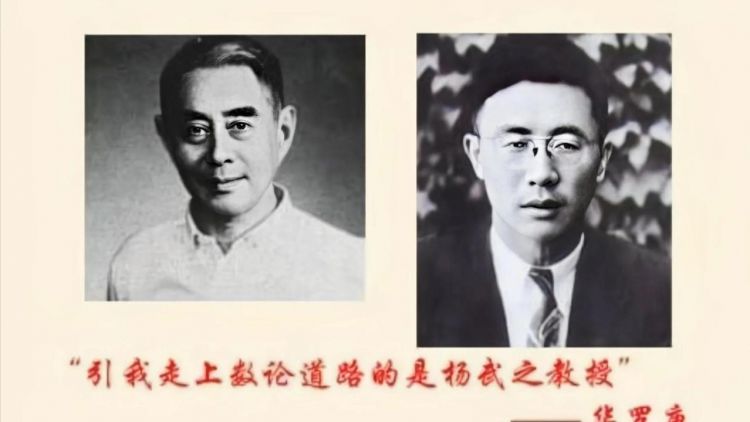
The above is all the content about Yang Wuzhi, Yang Wuzhi's children, and the relevant content about Yang Wuzhi's case. I hope it can help you.
